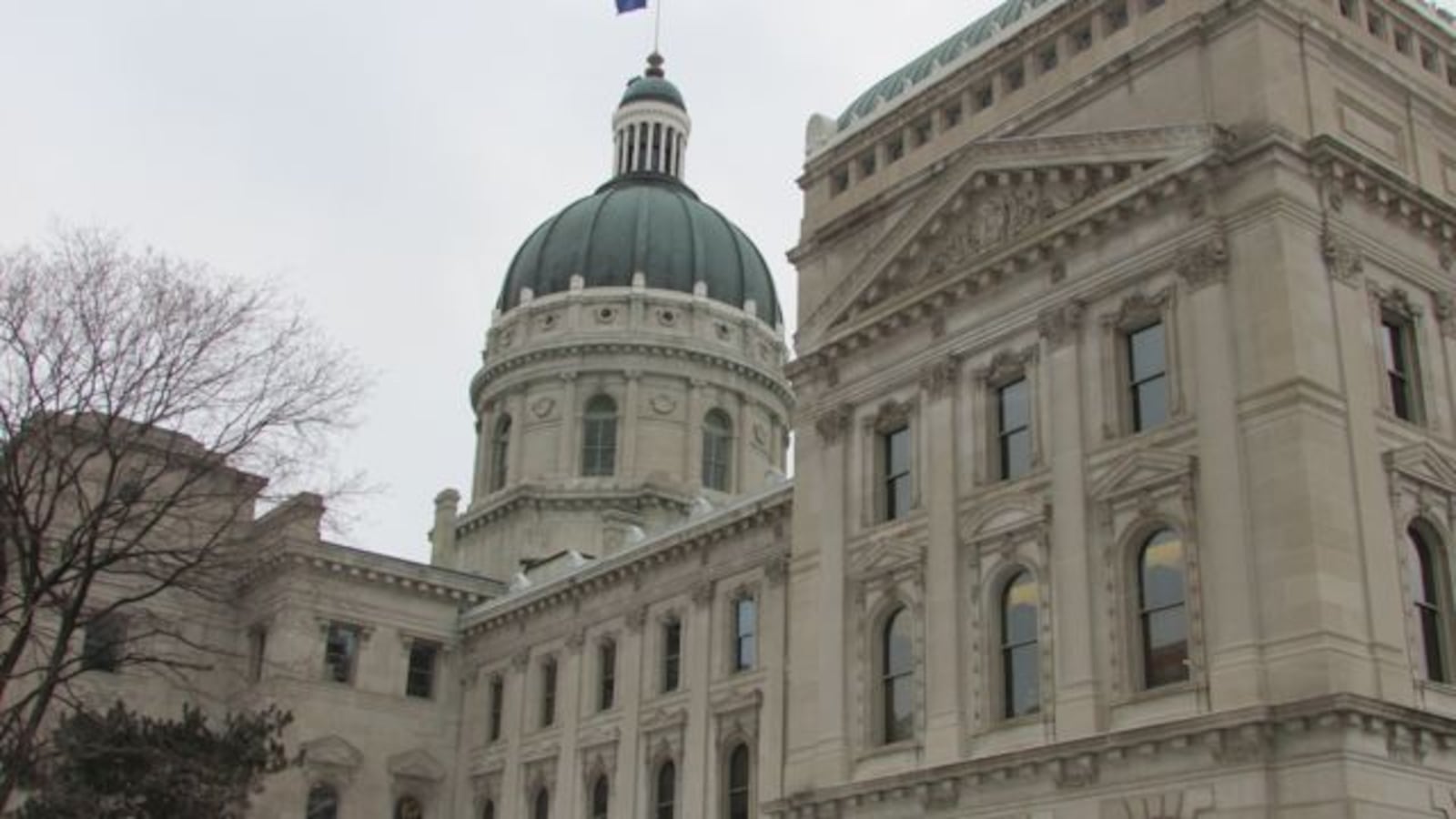One candidate vying for the Democratic nomination in Indiana’s governor’s race is seizing on the frustration of public school educators by proposing a plan so sweeping that even he acknowledges it isn’t politically viable.
In his education plan, released Thursday, candidate Josh Owens calls for raising teacher pay by dissolving the state’s voucher program, which now serves some 35,000 Indiana students. It’s one of many of his ideas that — like previous progressive proposals, including using the state’s $2 billion budget reserves to fund teacher pay initiatives — are unlikely to win the backing of the state’s Republican supermajority.
“Obviously I think that with the makeup of the legislature as it is, it’s certainly not possible,” Owens said about ending the voucher program. “But that’s the whole point of the election that’s coming up, is for us to have conversations about big ideas, and really thinking about what are the values that we have.”
Indiana is home to one of the nation’s largest and broadest voucher programs and spends around $160 million a year to pay students’ private school tuition. In 2019, more than 3% of students in Indiana used vouchers.
The program was meant to give students from low-income families — particularly students with special education needs or students attending failing public schools — access to private options. But critics of vouchers say that the program largely funds religious education that doesn’t have to meet the same standards as public schools and is so broad that many of the students who receive them would attend private school anyway.
“In the abstract, what vouchers are trying to solve is noble,” Owens said. “But in practice what it ends up doing is taking resources away from our public schools and away from those schools that really need them.”
Under Owens’ plan, the state would use its surplus to create a $300 million permanent public education endowment, with the proceeds benefiting public schools. The state would also phase out vouchers over multiple years, allowing students currently in the program to continue receiving the funding until they move schools or graduate.
In an email statement Thursday morning, EdChoice, a national school choice advocacy organization based in Indianapolis, said the conversation about K-12 education in Indiana should focus on finding “more options for students, not fewer.” (EdChoice is a funder of Chalkbeat.)
“Hard-working Hoosier families shouldn’t be tossed around like a political football for trying to find the right schooling option for their kids,” said Jennifer Wagner, an EdChoice spokeswoman. “Our state has a robust choice environment … That’s a thing we should celebrate, not disparage, especially when so many families are utilizing choice beyond the voucher program.”
Owens’ proposal speaks to the growing frustration among teachers in Indiana over their pay. In 2016-17, Indiana teachers made an average salary of $50,554, according to the National Center for Education Statistics, compared to $61,602 in Illinois and $57,000 in Ohio. Starting salaries in Indiana, however, can be as low as $30,000.
Last session lawmakers pumped more money into schools overall — an increase of 2.5 percent — and freed up $70 million each year in retirement payments, which they hoped would send more money into teachers’ pockets. But the impact of that funding varies across districts, and there’s no guarantee school systems will use the additional dollars to increase salaries. And it appears unlikely that lawmakers will revisit the issue in the upcoming legislative session, when the state’s two-year budget isn’t scheduled to be reopened.
Owens, 34, is a Butler University economics instructor and the CEO of a company that develops digital strategies for retailers. He previously chaired the Indiana Charter School Board, to which he was appointed by former Gov. Mike Pence in 2015, and served as an economic policy adviser for former Rep. Luke Messer, a Republican. Owens ran for a seat on the Indianapolis Public School Board in 2014, but lost.
He will face two other candidates for the Democratic gubernatorial nomination, former state health commissioner Woody Myers, and state Sen. Eddie Melton, a former State Board of Education member. Neither have released education plans yet.
Melton also appears to be making teacher pay the center of his campaign, which he officially announced on Tuesday with Republican State Superintendent Jennifer McCormick by his side. In a campaign video posted Tuesday, Melton pledged to increase teacher pay: “We need to invest in our schools and value our teachers.” This summer he and McCormick went on a statewide listening tour on education policy.
The Democratic primary is scheduled for May 5. The winner will face Republican Gov. Eric Holcomb, who has already announced that he will seek a second term.

